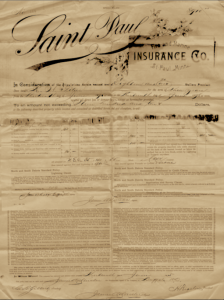1. Binding Arbitration Clauses Automobile Insurance Policies Are Not Enforceable in Nevada
In Nevada, mandatory arbitration clauses in contracts for automobile insurance are not binding on the insured. NRS 690B.017 (Provisions for arbitration not binding) provides:
NRS 690B.017 (Provisions for arbitration not binding) provides:
No provision for arbitration contained in an automobile liability or motor vehicle liability insurance policy delivered, issued for delivery or renewed in this State is binding upon the named insured or any other person who makes a claim under the policy.
Consequently, an insured cannot be compelled to mandatory arbitration pursuant to an arbitration clause in the policy — i.e., the clause is “voidable.” However, nothing in NRS 690B.017 precludes an insured from compelling arbitration pursuant to such a clause.
Pursuant to NRS 690B.017, an insurer may only compel arbitration if there is a written agreement to arbitrate a dispute, separate and apart from the policy’s arbitration provision. As always, the parties can agree to binding arbitration as an alternative means to resolving a dispute with mutually agreeable terms.
If the parties dispute whether there is an agreement to arbitrate, the matter may be resolved by a court. NRS 38.221 (Motion to compel or stay arbitration).
Where an alternative dispute resolution clause exists, any doubts concerning the arbitrability of the subject matter of the dispute are to be resolved in favor of arbitration. Exber, Inc. v. Sletten Const. Co., 92 Nev. 721, 558 P.2d 517 (1976). In the absence of the most forceful evidence of the purpose to exclude a claim from arbitration, the claim is properly submitted to arbitration. Clark County Public Employees v. Pierson, 106 Nev. 587, 798 P.2d 136 (1990). The Nevada Supreme Court has further indicated that where the contract calls for alternative dispute resolution, the parties are not to be deprived by the Court of the benefit of arbitration, and any doubt is to be resolved in favor of arbitration. Exber, Inc. v. Sletten Construction Co., 92 Nev. 721, 528 P.2d 517 (1976).
If a claimant or an insurer wishes to compel arbitration, a motion requesting such relief must be filed as soon as practical. “Waiver of a right may be inferred when a party engages in conduct so inconsistent with an intent to enforce the right as to induce a reasonable belief that the right has be relinquished.” Nevada Yellow Cab Corp. v. Eighth Judicial Dist. Court, 123 Nev. 44, 152 P.3d 737 (2007). Consequently, if a party waits to enforce the arbitration clause, especially if made after the court has issued substantive rulings or findings, the right to arbitrate may be waived.
2. MANDATORY AND VOLUNTARY ARBITRATION
So long as both sides agree, any case may be arbitrated, with any terms. Arbitration is favored in Nevada as a matter of public policy and Nevada has adopted the Uniform Arbitration Act. NRS 38.216; Mikohn Gaming Corp. v. McCrea, 120 Nev. 248, 89 P.2d 36 (2004).
In Clark County and Washoe County, cases whose probable value is less than $50,000, are remanded to the mandatory, non-binding arbitration program. However, there is an exception for declaratory relief actions, so depending on the relief sought by the complaint for UM/UIM benefits, the case may be exempt from the program. See Nev. Arb. Rule 3(A):
All civil cases commenced in the district courts that have a probable jury award value not in excess of $50,000 per plaintiff, exclusive of interest and costs, and regardless of comparative liability, are subject to the program, except … actions for declaratory relief … actions in which the parties have agreed in writing to submit the controversy to arbitration or other alternative dispute resolution method prior to the accrual of the cause of action, actions seeking equitable or extraordinary relief, actions that present unusual circumstances that constitute good cause for removal from the program, actions in which any of the parties is incarcerated and actions utilizing mediation pursuant to Subpart C of these rules.
The program is not binding absent an agreement between the parties. Even if the parties agree to a private arbitrator, courts have held that alone to be insufficient evidence of the parties’ intent for the arbitration to be binding. Roth v. Scott, 112 Nev. 1078, 921 P.2d 1262 (1996). Unless the parties expressly agree in writing that the arbitration is binding, either party may appeal an arbitration award.
Before you sign any kind of agreement or release to settle a car insurance claim with your insurance, or the other guy’s — call Yan Kenyon to discuss your options.
Jay Kenyon is a principal of the law firm of Yan Kenyon. His practice is 100% devoted to personal injury law. Call for your free consultation. 702.888.0000
